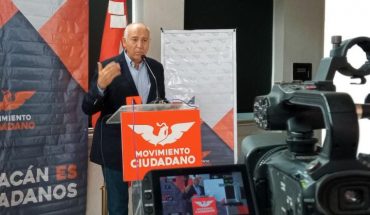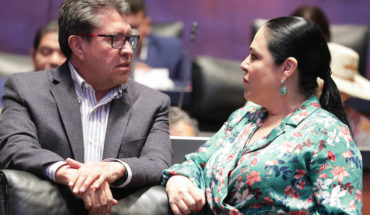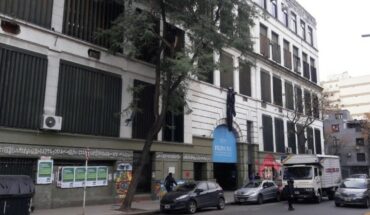More than three years after its creation, the Specialized Prosecutor’s Office in Fight against Corruption (FECC) of the Attorney General’s Office (FGR) has managed to bring before a judge 3.6% of the more than 3,000 investigation folders initiated for alleged crimes committed by public officials and has obtained only seven convictions, according to statistics obtained through transparency.
The ineffectiveness of the Anti-Corruption Prosecutor’s Office is related to budget cuts, under-exercise of public resources, shortage of personnel and lack of training of public prosecutors. The disproportion between the workload and the available resources is such that an agent assigned to this prosecutor’s office has on average 50 investigation folders under his charge.
According to two different requests for public information, whose data were synthesized for this note, the FECC has initiated 3,036 investigation folders between March 2019 – the date of its constitutional creation – and October 2022.
The files were initiated for crimes such as illicit enrichment, illicit exercise of public service, embezzlement, illicit use of powers and powers, abuse of authority, bribery, intimidation, cover-up and fraud.
Of these files, the prosecutor’s office has prosecuted 111, which represents 3.6% of the total, according to the revised figures. And, of this total, he has only obtained seven convictions against federal officials: two in oral trials and five in abbreviated trials.
Political Animal requested a position from the Anti-Corruption Prosecutor’s Office, headed by María de la Luz Mijangos Borja, but there was no response.
Insufficient staff
The FECC was born in March 2019, as part of the transformation of the Attorney General’s Office (PGR) into FGR, with which it was endowed with constitutional autonomy with respect to the Executive Power.
But the nascent prosecutor’s office did not have a labeled budget for its first year of operation, so other areas of the FGR had to transfer human and financial resources to it.
“In this context, although complaints were received from the Specialized Prosecutor’s Office to Combat Corruption from the first day, the conditions were not in place to open an investigation folder until May (2019), when three public prosecutors were commissioned. But it was until the month of July when it was possible to begin to carry out the investigations leading to the fact that, from that moment, the minimum necessary personnel were available to carry out all the steps that the ministerial proceedings require, “said the prosecutor Mijangos in her 2019 work report sent to Congress.
There, the official explained that the start of the new FECC was also slowed down by the lack of training of public prosecutors in the new oral penal system.
“The accusatory criminal system remains a challenge … Despite the fact that since 2016 the mixed penal system was abandoned, there are inertias that are preserved. The public prosecutors assigned to the Specialized Prosecutor’s Office in Combating Corruption had mostly not participated in oral trials, had not integrated investigation files in accordance with the accusatory criminal system, nor are they yet trained in litigation skills. This has complicated the determination of the investigation folders in cases in which a denounced person must be linked to the process,” Mijangos said.
According to official information, the Anti-Corruption Prosecutor’s Office went from having 23 agents of the Public Ministry to 61 today.
But, although the number of specialized officials has been gradually increasing, the number of files that must be integrated is even greater.
According to the figures obtained by transparency, 773 investigation folders were initiated in 2019, 794 in 2020, 854 in 2021 and 615 as of October 2022.
This means that each agent of the Public Prosecutor’s Office is in charge, on average, of 50 folders at the same time.
Cuts and budget sub-exercise
2020 was the first year in which the Anti-Corruption Prosecutor’s Office enjoyed resources allocated in the Budget of Expenditures of the Federation (PEF).
However, since its creation, it has suffered cuts to its allocated budget, or it has not been exercised.
For example, for 2020, the Chamber of Deputies allocated 1,100 million pesos, but in the course of the fiscal year 31.3 million pesos were cut, according to information from the Public Account.
Of the budget that remained, of 78.6 million pesos, the FECC exercised 61 million 941 thousand 686. That is, despite the lack of trained personnel, they ran out of gas.tar 16 million 668 thousand 845 pesos.
In 2021, the resources allocated to the Anti-Corruption Prosecutor’s Office in the PEF increased to 123 million 531 thousand 300 pesos. However, once again, the institution suffered a cut, now of 56.9 million pesos (almost half of what was originally granted).
That year, the prosecutor’s office spent the 66 million 597 thousand 835 pesos that remained, that is, there was no sub-exercise.
For 2022, the FECC obtained resources from the PEF for 174 million 792 thousand 336 pesos. Although this time no reductions were applied, during the first half of the year it exercised only 31 million 867 thousand 101 pesos, according to more current data from the Public Account, that is, only 18% of its total annual budget.
In the PEF 2023 project, the Anti-Corruption Prosecutor’s Office is allocated 223 million 363 thousand 087 pesos, the highest expenditure since its creation. However, it is likely that during next year’s fiscal year cuts will again be applied or that the institution will again incur sub-exercises.
Investigations
The FECC was born with the task of combating “great corruption” in the government, but also isolated cases, taking into account that in the cases not only public servants participate, but also, many times, businessmen.
According to the reports of the work of the Anti-Corruption Prosecutor’s Office corresponding to the 2019 and 2020 fiscal years – the only ones available – most of the officials against whom investigation folders have been initiated belong to Pemex, the ISSSTE, the IMSS, the SAT, the extinct Federal Police and the Sedatu.
Of the 3,036 folders opened by the FECC, in 305 cases the incompetence of the prosecutor’s office to investigate was determined, in which case, sometimes, the files are turned over to other areas of the FGR. In another 114 cases, the abstention from investigating was determined, and in another 277 the non-exercise of criminal action was determined, according to official data obtained by transparency.
Only 111 investigation files were filed with a federal judge.
One of the cases where the FECC managed to link public officials to the process – when the judge considered that there were sufficient elements to presume their responsibility for the crimes of which they were accused – was for a case of corruption within the INE, in relation to a contract awarded irregularly to an event company.
Another case prosecuted is related to a struggle between the IMSS and the Ministry of Finance for the centralization of resources in the Oficialía Mayor, which would have caused a budgetary paralysis and shortage of medicines, as documented Political Animal.
According to the data obtained through requests for information, only in seven cases of the 111 judicialized folders was a conviction against federal officials achieved.
Two of these sentences were obtained in oral trials. In one case, for the crime of bribery, the judge imposed on an official a sentence of two years and eight months in prison and disqualification for 292 days from holding public office. In the second case, for the crime of embezzlement, a penalty of one year and four months in prison, a fine of 5,660 pesos, disqualification for six years and eight months to hold public office, and reparation of the damage for 354,691 pesos were imposed.
There have been other major cases of corruption that, however, are not investigated by the FECC, but by the Prosecutor’s Office of Competition Control, headed by Juan Ramos López, right-hand man of the Attorney General, Alejandro Gertz Manero.
An example of this situation occurred in the case of the investigation against Julio Scherer Ibarra, former legal advisor to the Federal Executive, and other officials for allegedly favoring from their public office the company Aleática, formerly OHL. According to authorities of the FGR, that file was assembled in the Prosecutor’s Office of Internal Affairs and from there it was referred to the prosecutor’s office of Ramos, without passing through the hands of the prosecutor Mijangos.
Another case is that of the millionaire corruption in Segalmex, whose damage to the treasury amounts to 9,500 million pesos. The first file was integrated into the Anti-Corruption Prosecutor’s Office, but later passed into the hands of Prosecutor Ramos, from where the investigations are currently conducted. A new investigation folder for the Segalmex case was even initiated in the Specialized Prosecutor’s Office in The Field of Organized Crime (FEMDO), leaving the Mijangos prosecutor’s office out of the investigation.
What we do at Animal Político requires professional journalists, teamwork, dialogue with readers and something very important: independence. You can help us keep going. Be part of the team.
Subscribe to Animal Político, receive benefits and support free journalism.#YoSoyAnimal





